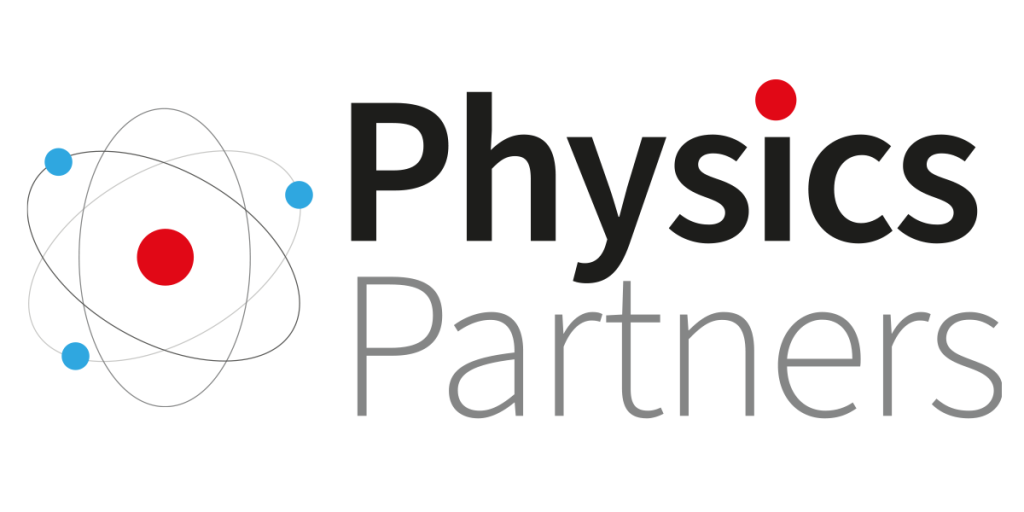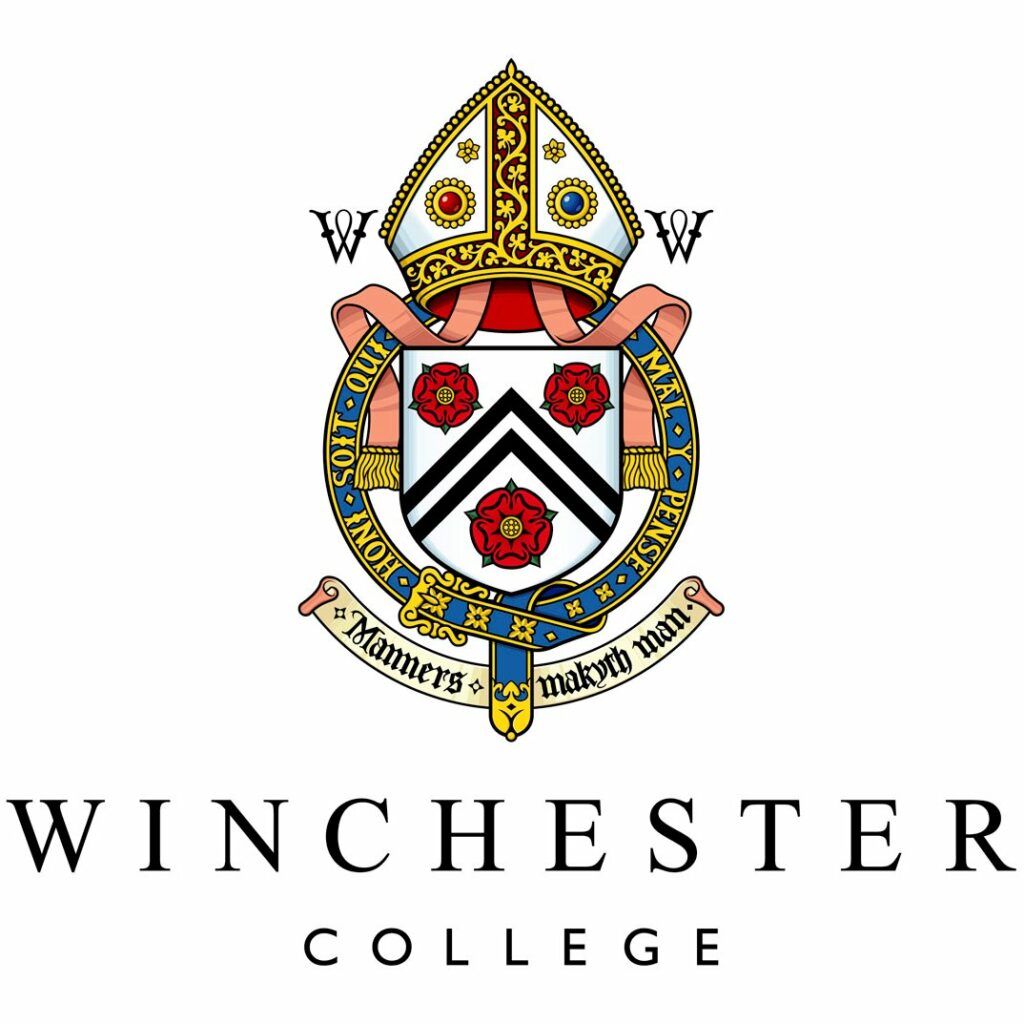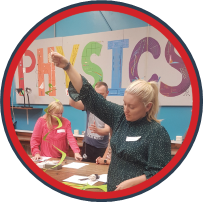

Join us for a day of physics workshops and a topical keynote at the Winchester College Festival of Physics on Saturday 6th July, 9am – 3pm. Generously hosted and supported by Winchester College (SO23 9PG), this full day of training and workshops will include sessions for all secondary teachers of physics, including ECTs and trainees. Technicians are also welcome. Lunch and refreshments are included, as you will leave with plenty of festival resources!

Sessions will include hands-on practical activities and ideas for making your teaching even more engaging, all delivered by expert physics teacher trainers. There will also be a chance to network with colleagues from across the region and browse exhibition stands showcasing nationally and locally available resources, as well as physics equipment and suppliers.
We are delighted to be welcoming Prof. David Bacon as the keynote speaker and are looking forward to his fascinating talk at the of the day.
Booking for this event is now live and will close on Thursday 27th June. Please make your workshop preferences when you book. and we will do our best to accommodate your choices. Please find full programme details below, followed by the booking form. We are asking for a contribution of £10/person towards the cost of this event. There is the option to request an invoice upon booking. You may find this letter template useful for asking your school to pay the £10 fee.
Keynote Speaker: David Bacon ‘The missing Universe’
David Bacon is Professor of Cosmology and Director at the Institute of Cosmology and Gravitation, University of Portsmouth.
In this talk David will introduce from scratch where we’ve got to in our understanding of the Universe. The behaviour of galaxies indicates that there are strange entities, dark matter and dark energy, which dominate the way that the cosmos is developing. Detailed measurements are also showing that our theories are creaking and may need changing, and David will describe some of the attempts to do so. Finally, David will discuss the prospects for better understanding with the exciting range of forthcoming world-class telescopes.
Workshop 1 choices
| 1.1 GCSE Required Practicals | Jeremy Douglas | KS4 | It’s always worth increasing our familiarity and experience with Physics GCSE required practicals. What are the best ways to present them to your pupils – and what are the pitfalls to prevent? Are there alternative methods or equipment that can be used if necessary? A wide selection of them will be set up for you to get your hands on. You can try out some or all of them. | Jeremy Douglas has taught Physics at Winchester College since 2004 and was Head of Physics for 14 years. He has a particular interest in Physics CPD and has worked with Physics Partners for many years. |
| 1.2 What Happens Next? | Darrell Hamilton | KS4 | Discover a series of experiments with unexpected outcomes to challenge students’ presumptions and so encourage them to explore and debate physics principles. The simple demonstrations each present a puzzle with a range of possible outcomes. They can be used as starters or prompts for revision. | Darrell Hamilton is a STEM Learning Physics Coach. Previously he was Head of Physics for 15 years before becoming a Head of Science for 8 years. He is a trained coach offering CPD delivery and teacher mentoring. |
| 1.3 Multi-Step Problem Solving – moving from 0/6 to 6/6 | Isabelle Parkes | KS4 | This session looks at how we can help our students tackle those tricky, multistep calculations that often appear as 6 markers in physics GCSE exams. We will take a practical, evidence-based approach – one that will motivate and support your students. We will look at how to explicitly teach your students the metacognitive strategies that they need, how to set appropriate levels of challenge, and how to design guided practice that leads to confident independent workers. | Isabelle is head of physics at the Arnewood School in Hampshire. She has delivered training for Bournemouth Poole and Dorset Secondary Training Partnership SCITT and for the Institute of Physics Stimulating Physics Network. She received an Institute of Physics Teacher’s Award in 2021. |
| 1.4 Identifying the building blocks of knowledge to teach the KS3 curriculum | Sam Weston | KS3 | This session looks at the KS3 curriculum, identifying the building blocks of knowledge required to teach it. We will map this with the KS1 and KS2 curriculum and see how these building blocks are tackled to help with the transition to the more complex ideas. We will then discuss opportunities to work with feeder schools to support the building of these ideas and look at potential misconceptions. | Sam works for the Public Engagement with Research unit at University of Southampton. Previously she was Physics Outreach Officer at University of Surrey and also organised and led training sessions for the Science Learning Partnership in Hampshire |
| 1.5 Optics Workshop | Pearl John | KS3, 4 & 5 | Discover interactive resources for optics based activities in the classroom and hear about exciting careers in optics. | Pearl John is an artist working with Holography and Public Engagement Leader, Physics & Astronomy, University of Southampton |
| 1.6 Ultrasonic Motion Sensor | Dan Roberts | KS3, 4 & 5 | Ultrasonic motion sensor- the most versatile physics sensor! A circus of activities based around this sensor, graph match, basketball toss, falling objects, Sonar example, oscillations etc. | Dan Roberts is Company Director of Instruments Direct. He is also a STEM Ambassador. |
Workshop 2 Choices
| 2.1 What Happens Next? (repeat session) | Darrell Hamilton | KS4 | Discover a series of experiments with unexpected outcomes to challenge students’ presumptions and so encourage them to explore and debate physics principles. The simple demonstrations each present a puzzle with a range of possible outcomes. They can be used as starters or prompts for revision. | Darrell Hamilton is a STEM Learning Physics Coach. Previously he was Head of Physics for 15 years before becoming a Head of Science for 8 years. He is a trained coach offering CPD delivery and teacher mentoring. |
| 2.2 Pressure Make & Play | Steve Hearn | KS3, 4 & 5 | This hands-on session will explore ideas to support the teaching of liquid and gas pressure. Activities will include; a manometer pressure gauge; a simple hydraulic pressure apparatus used to lift a heavy object; a model vacuum pump and a model vacuum bazooka. | Steve Hearn is an experienced physics teacher and physics teacher educator/mentor. Currently working on ITT with SCITTS and Universities but most importantly mentoring teachers who teach physics out of specialism. |
| 2.3 Why we are sometimes waving and drowning? | Trevor Plant | KS3 & 4 | Fun with slinkies and other wave models. Then the serious stuff. You’d think using the wave equation and explaining wavelength are easy tasks. But so many of us are getting it wrong and so increasing students’ misunderstandings. This session will explain the problem, show you how to do it better. It will also make you feel better about it, by sharing examples of other people and institutions (who really should know better!) getting it wrong! | Trevor Plant is an experienced coach and teacher educator who has previously worked for the IOP and the Universities of Brighton, Portsmouth and Southampton with trainee and practising teachers. Trevor taught A-level physics for over 28 years |
| 2.4 5 of the Big GCSE Mistakes that Teachers Make | Lewis Matheson | KS4 | From forces inside the atoms to introducing Newtons laws, there are several misconceptions that students (and some teachers) have about GCSE Physics. In this session, 5 of these are explained and practical methods for teaching them are discussed. Perfect for anyone involved in teaching GCSE Physics. | Lewis Matheson runs the popular YouTube channel Physics Online that has over one thousand physics videos used by students and teachers around the world. Hundreds of schools subscribe to his website with resources to support the entire GCSE and A Level Physics course. |
| 2.5 GCSE Required Practicals (repeat session) | Jeremy Douglas | KS4 | It’s always worth increasing our familiarity and experience with Physics GCSE required practicals. What are the best ways to present them to your pupils – and what are the pitfalls to prevent? Are there alternative methods or equipment that can be used if necessary? A wide selection of them will be set up for you to get your hands on. You can try out some or all of them. | Jeremy Douglas has taught Physics at Winchester College since 2004 and was Head of Physics for 14 years. He has a particular interest in Physics CPD and has worked with Physics Partners for many years. |
| 2.6 Save planning and marking time with Isaac Physics | Ingrid Murray | KS3, 4 & 5 | Isaac Physics is a free online open learning platform to support the development of problem-solving skills in physics from 11 to university. We now offer resources for maths at GCSE and A Level, and chemistry and biology at A Level. Work is auto-marked with feedback. Regular use of Isaac Physics is evidence-based to improve student skills, attainment and success in meeting offers for high-tariff universities for STEM degree courses; additionally, on average teachers save 3-4 hours on planning and marking. This session will introduce you to the features of an Isaac Physics Teacher account and explore the many resources on Isaac Physics for secondary science teachers. | Ingrid Murray is Teacher Support Manager at Isaac Physics and an IOP-accredited Physics Teacher Educator. |
Workshop 3 Choices
| 3.1 5 of the Big GCSE Mistakes that Teachers Make (repeat session) | Lewis Matheson | KS4 | From forces inside the atoms to introducing Newtons laws, there are several misconceptions that students (and some teachers) have about GCSE Physics. In this session, 5 of these are explained and practical methods for teaching them are discussed. Perfect for anyone involved in teaching GCSE Physics. | Lewis Matheson runs the popular YouTube channel Physics Online that has over one thousand physics videos used by students and teachers around the world. Hundreds of schools subscribe to his website with resources to support the entire GCSE and A Level Physics course. |
| 3.2 Why we are sometimes waving and drowning? (repeat session) | Trevor Plant | KS3 & 4 | Fun with slinkies and other wave models. Then the serious stuff. You’d think using the wave equation and explaining wavelength are easy tasks. But so many of us are getting it wrong and so increasing students’ misunderstandings. This session will explain the problem, show you how to do it better. It will also make you feel better about it, by sharing examples of other people and institutions (who really should know better!) getting it wrong! | Trevor Plant is an experienced coach and teacher educator who has previously worked for the IOP and the Universities of Brighton, Portsmouth and Southampton with trainee and practising teachers. Trevor taught A-level physics for over 28 years. |
| 3.3 Optics Workshop (repeat session) | Pearl John | KS3,4 & 5 | Discover interactive resources for optics based activities in the classroom and hear about exciting careers in optics. | Pearl John is an artist working with Holography and Public Engagement Leader, Physics & Astronomy, University of Southampton |
| 3.4 Pressure Make & Play (repeat session) | Steve Hearn | KS3,4 & 5 | This hands-on session will explore ideas to support the teaching of liquid and gas pressure. Activities will include; a manometer pressure gauge; a simple hydraulic pressure apparatus used to lift a heavy object; a model vacuum pump and a model vacuum bazooka. | Steve Hearn is an experienced physics teacher and physics teacher educator/mentor. Currently working on ITT with SCITTS and Universities but most importantly mentoring teachers who teach physics out of specialism. |
| 3.5 Identifying the building blocks of knowledge to teach the KS3 curriculum (repeat session) | Sam Weston | KS3 | This session looks at the KS3 curriculum, identifying the building blocks of knowledge required to teach it. We will map this with the KS1 and KS2 curriculum and see how these building blocks are tackled to help with the transition to the more complex ideas. We will then discuss opportunities to work with feeder schools to support the building of these ideas and look at potential misconceptions. | Sam works for the Public Engagement with Research unit at University of Southampton. Previously she was Physics Outreach Officer at University of Surrey and also organised and led training sessions for the Science Learning Partnership in Hampshire |
| 3.6 Save planning and marking time with Isaac Physics (repeat session) | Ingrid Murray | KS3, 4 & 5 | Isaac Physics is a free online open learning platform to support the development of problem-solving skills in physics from 11 to university. We now offer resources for maths at GCSE and A Level, and chemistry and biology at A Level. Work is auto-marked with feedback. Regular use of Isaac Physics is evidence-based to improve student skills, attainment and success in meeting offers for high-tariff universities for STEM degree courses; additionally, on average teachers save 3-4 hours on planning and marking. This session will introduce you to the features of an Isaac Physics Teacher account and explore the many resources on Isaac Physics for secondary science teachers. | Ingrid Murray is Teacher Support Manager at Isaac Physics and an IOP-accredited Physics Teacher Educator. |

Winchester College Festival of Physics 2024
Programme
9:00 – 9:30 Registration, refreshments and exhibition stands
9:30 – 9:40 Welcome
9:50 – 10:50 Workshop session one
11:00 – 12:00 Workshop session two
12:10 – 12:40 Lunch and exhibition stands
12:50 – 13:50 Workshop session three
14:00 – 15:00 Keynote, plenary and close
